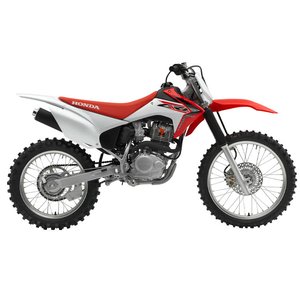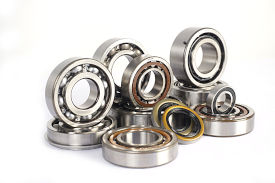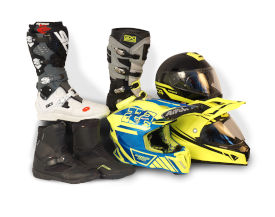Honda CRF230F (2003-2019): The Unapologetic Trail Companion That Outlasted Trends
Introduction: The Timeless Trail Whisperer
The Honda CRF230F sits in that rare sweet spot of motorcycling - a machine that refuses to age. From its 2003 debut to its 2019 curtain call, this air-cooled warrior maintained its essence while competitors chased technological novelty. After throwing a leg over a well-maintained 2015 example, I immediately understood why this bike became the secret handshake of trail riders, backyard explorers, and moto schools alike. It's not about specs sheets here; it's about the unspoken conversation between rider and machine when you're three miles deep in single-track territory.
Design Philosophy: Function Over Flash
Honda's designers clearly had a "if it ain't broke..." mentality with the CRF230F. The steel frame wears its simplicity like a badge of honor, with the 223cc single-cylinder engine hanging low for that signature Honda balance. At 34.1 inches (866mm), the seat height feels like Honda did the math on human inseams - my 5'8" frame could flat-foot comfortably, while taller riders still find the ergonomics forgiving during technical sections.
The CRF230F's dry weight of 238 lbs (108 kg) becomes its greatest asset once moving. Unlike modern enduros that feel like wrestling match-ready athletes, this Honda greets you like a trusted hiking partner - light enough to muscle through ruts but substantial enough to feel planted at speed.
Engine Performance: The Art of Predictable Power
Don't let the 223cc displacement fool you - this engine plays chess while others play checkers. The air-cooled SOHC mill delivers power with the predictability of a Swiss train schedule. With 9.0:1 compression and a 37mm Keihin carburetor (later models used a 26mm variant), it's virtually immune to altitude changes and questionable pump gas.
The six-speed transmission is where Honda's trail wisdom shines. First gear crawls up rock gardens like a trials bike, while sixth comfortably hums along fire roads at 50 mph (80 km/h). The magic happens in between - that sweet spot where the engine's 15-20 hp output feels infinitely tunable through the right wrist. It's not about raw speed here; it's about torque delivery so linear you could plot it on graph paper.
Off-Road Manners: Where the CRF230F Truly Lives
The Showa suspension package tells a story of calculated compromise. With 9.5 inches (241mm) up front and 9 inches (229mm) out back, it's plush enough to take the sting out of roots and rocks but firm enough to prevent bottoming-out during enthusiastic riding. Over a mix of Pennsylvania shale and Georgia red clay, the 37mm forks maintained composure where fancier USD setups might overcomplicate.
Ground clearance ranges between 11.7-12 inches (297-305mm) across model years - enough to clear most trail debris but low enough to encourage creative line choices. The IRC tires (80/100-21 front, 100/100-18 rear) offer predictable breakaway characteristics, perfect for learning throttle-slide control.
On-Road Limitations (And Why They Don't Matter)
Let's be clear - the CRF230F treats pavement like a necessary evil. The 18/21-inch spoked wheels feel vague above 45 mph (72 km/h), and that drum rear brake requires planning ahead. But this misses the point entirely. This bike exists for the space between trees, not between lane markers. When I did venture onto backroads, the engine's relaxed vibration levels and narrow profile made it surprisingly competent for short connects between trail networks.
The Competition: Contextualizing the CRF230F
Yamaha TT-R230
Yamaha's answer shares similar dimensions but leans sportier, with a slightly peakier powerband. The Honda counters with lower seat height and better cold-start reliability - crucial when stalled on a hillside.
Kawasaki KLX230
Kawasaki's modern fuel-injected entry has more tech but lacks the CRF's aftermarket support. The Honda's carburetor becomes a virtue for riders prioritizing field-serviceability over convenience.
Suzuki DR200S
More road-biased with its 17-inch rear wheel, the Suzuki sacrifices true trail capability. The Honda's larger wheels and longer suspension travel maintain off-road supremacy.
What the CRF230F lacks in modernity, it gains in community support. Every trailside mechanic knows these bikes, and every aftermarket company still makes parts - a crucial advantage the competition can't match.
Maintenance: Keeping the Legend Alive
Here's where the CRF230F truly shines as a MOTOPARTS.store favorite:
Air Cooling Simplicity No radiators to crush or coolant to change. Our high-flow oil filters and synthetic oils keep temperatures in check during slow technical riding.
Carburetor Care The Keihin carb rewards regular attention. Our rebuild kits and jetting options help adapt to altitude changes or aftermarket air filters.
Suspension Refresh While the Showa components are durable, our progressive-rate springs and shock linkage bearings can modernize the ride without breaking the bank.
Chain & Sprocket Life The #520 chain holds up well, but our X-ring kits and steel sprockets extend service intervals for riders logging serious trail miles.
Brake Upgrades That front 240mm disc benefits immensely from our sintered pads and braided steel lines. For the rear drum, our high-friction shoes improve modulation.
Essential Upgrades - Aluminum handlebars (OEM bend available) - Skid plates for rock protection - LED lighting kits for dusk rides - Airbox modification kits (paired with proper jetting)
Conclusion: The Never-Ending Story
Riding the CRF230F feels like cracking open a time capsule that's somehow still relevant. It's not the fastest, lightest, or most technologically advanced. But in an era where motorcycles often feel like disposable gadgets, this Honda remains a tool - honed, proven, and infinitely adaptable.
The real magic lies in what happens after the test ride. With MOTOPARTS.store's vast catalog, that stock 230F can transform into anything from a woods weapon to a desert explorer. That's the CRF230F's open secret: it's not just a motorcycle, but a blank canvas wearing Honda red.
Specifications sheet
| Engine | |
|---|---|
| Stroke: | Four-stroke |
| Fuel system: | Carburettor (26mm piston-valve) |
| Displacement: | 223 ccm |
| Fuel control: | Single Overhead Cams (SOHC) |
| Bore x stroke: | 65.5 x 66.2 mm (2.6 x 2.6 in) |
| Configuration: | Single |
| Cooling system: | Air |
| Compression ratio: | 9.0:1 |
| Number of cylinders: | 1 |
| Valves per cylinder: | 2 |
| Dimensions | |
|---|---|
| Wheelbase: | 1374 mm (54.1 in) |
| Dry weight: | 108 |
| Wet weight: | 113 |
| Seat height: | 866 mm (34.1 in) (adjustable, lowest setting) |
| Ground clearance: | 297 mm (11.7 in) |
| Fuel tank capacity: | 7.19 L (1.90 US gal) |
| Reserve fuel capacity: | 1.51 L (0.40 US gal) |
| Drivetrain | |
|---|---|
| Chain type: | #520 O-ring-sealed |
| Final drive: | chain |
| Transmission: | 6-speed |
| Rear sprocket: | 50 |
| Front sprocket: | 13 |
| Maintenance | |
|---|---|
| Rear tire: | 100/100-18 |
| Engine oil: | 10W40 |
| Front tire: | 80/100-21 |
| Break fluid: | DOT 4 |
| Spark plugs: | NGK CR8E (common fitment) |
| Valve clearance check interval: | 24,000 km / 15,000 mi (typical for air-cooled Honda engines) |
| Additional Notes | |
|---|---|
| Color options: | Red |
| Starter system: | Electric & kick |
| Factory warranty: | 6 months (varies by region) |
| Emissions compliance: | Meets CARB and EPA standards |
| Chassis and Suspension | |
|---|---|
| Frame: | Steel |
| Trail: | 112 mm (4.4 in) |
| Rear brakes: | Drum brake |
| Front brakes: | Single disc |
| Rear suspension: | Pro-Link Showa single shock with spring-preload adjustability; 229 mm (9.0 in) travel |
| Front suspension: | 37mm leading-axle Showa fork; 241 mm (9.5 in) travel |
| Rake (fork angle): | 27.3° |



















